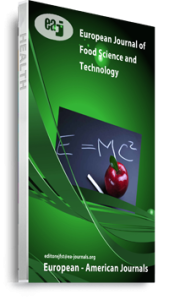Effect of phytol on Staphylococcus aureus, Bacillus cereus, Pseudomonas aeruginosa and Enterococcus faecalis isolated from grilled meat was examined using a broth dilution method. Time kill effects of phytol concentration on the bacterial isolates after 4h and 24hrs incubation were determined and this showed that inhibitory effects of cell growth decreased at elevated concentrations. The minimum inhibitory concentration (MIC) and minimum bactericidal concentration (MBC) values of phytol against the bacterial isolates were found in the range of 31.25µg/ml to 250 µg/ml and 125 µg/ml to 250µg/ml respectively. Effect of phytol on the dehydrogenase activity of the bacterial isolates showed that gram negative Pseudomonas aeruginosa had higher dehydrogenase activity than the gram positive Bacillus cereus, Enterococcus faecalis and Staphylococcus aureus. Effect of phytol on protease activity of the bacterial isolates was assessed and it was observed that protease activity decreased with increase in phytol concentration. The effect of phytol on growth and protease activity was not statistically significant (P<0.05) but dehydrogenase activity varied significantly (p>0.05) among the bacterial isolates. This result indicates that phytol could be used as an antibacterial agent in food industry to inhibit the growth of certain foodborne pathogens.
Keywords: Phytol; Dehydrogenase Activity; Protease Activity; Grilled Meat.

